Fifteen New Faculty Join Engineering in 2019-20
June 4, 2020 - The Samueli School of Engineering welcomed 15 faculty during the 2019-20 academic year. This brings the total number of engineering faculty to 149. The new members are:
Jump to:
- Biomedical Engineering
- Chemical and Biomolecular Engineering
- Civil and Environmental Engineering
- Electrical Engineering and Computer Science
- Materials Science and Engineering
- Mechanical and Aerospace Engineering
Biomedical Engineering
 Joshua Mauney
Joshua Mauney
Jerry D. Choate Presidential Chair in Urology Tissue Engineering
Associate Professor
Departments of Urology and Biomedical Engineering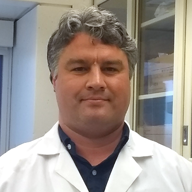
Research Interests: tissue engineering of urogenital, gastrointestinal and respiratory hollow organs; silk fibroin biomaterials, cellular and molecular mechanisms of tissue regeneration following surgical reconstruction
Education: Ph.D., Tufts University
Mauney comes to UCI from Harvard Medical School, where he conducted research at the intersection of tissue engineering and biomaterials for urinary and gastrointestinal tract repair. He has a dual appointment in urology and biomedical engineering. Mauney received his bachelor’s degree in chemical engineering and doctorate in biotechnology engineering from Tufts University. He served as a staff scientist in the Department of Urology at Boston Children’s Hospital and an associate professor of surgery at Harvard Medical School. Mauney’s laboratory focuses on the development of “off-the-shelf” silk fibroin biomaterials for the repair of visceral hollow organs. He also specializes in the creation of novel large-animal models of urinary tract and gastrointestinal disease for preclinical medical device testing. He has been continuously funded by the NIH since 2011.
Links: Faculty profile
 Ronke Olabisi
Ronke Olabisi
Assistant Professor
Department of Biomedical Engineering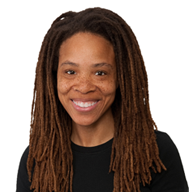
Research Interests: biomechanics, biomaterials, tissue engineering and regenerative medicine to repair or build new tissues for treating defects due to injury, disease, aging or spaceflight
Education: Ph.D., University of Wisconsin-Madison
Olabisi earned her bachelor’s degree in mechanical engineering from MIT. At the University of Michigan, she completed one master’s degree in mechanical engineering and another in aeronautical engineering. Olabisi received her doctorate in biomedical engineering from the University of Wisconsin-Madison. She comes to UCI from Rutgers University. Olabisi is the recipient of a 2016 Engineering Information Foundation Award, a 2018 NSF CAREER Award, a 2019 Johnson & Johnson Women in Science, Technology, Engineering, Mathematics, Manufacturing, and Design Scholar Award; and in 2019 she was named one of the Biomedical Engineering Society’s Young Innovators in Cellular and Molecular Bioengineering. She is a member of the 100 Year Starship, a DARPA seed-funded interdisciplinary initiative that seeks to replicate the rapid technological development stimulated by the moon landings by tackling human interstellar travel. Olabisi’s research involves modifying synthetic materials with the natural – from small molecules, to large proteins, to whole cells – in order to develop cell-responsive biomaterials for tissue engineering and wound healing.
Links: Olabisi Lab
Chemical and Biomolecular Engineering
 Robert Nielsen
Robert Nielsen
Assistant Professor
Department of Chemical and Biomolecular Engineering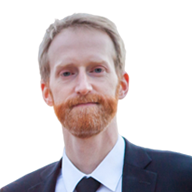
Research Interests: electronic structure, thermodynamics and mechanism, catalysis applied to alkane activation, solar fuels
Education: Ph.D., California Institute of Technology
Nielsen earned his bachelor’s degree from Northwestern University and his doctorate from the California Institute of Technology, both in chemical engineering. He comes to UCI from Caltech, where he has served for more than a decade as the director of catalysis in the Materials Simulation Center. At the center, Nielsen worked with students and postdocs using atomistic models to determine mechanisms and structure-function relationships responsible for the selectivity and activity of heterogeneous and molecular catalysts for hydrogen evolution, CO2 reduction and water oxidation. He led programs in alkane oxidation, solar fuels and hydrosilylation that addressed the efficient use of natural gas reserves and the implementation of renewable energy technologies. He has published more than 50 journal articles on these topics. The work has led him to explore ways of combining computation and chemical intuition to identify promising materials in the practically infinite space of composition.
Links: Faculty profile
 Erdem Sasmaz
Erdem Sasmaz
Assistant Professor
Department of Chemical and Biomolecular Engineering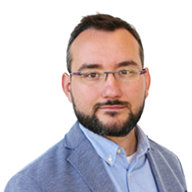
Research Interests: flame synthesis of nanomaterials, tandem reactions, alternative production routes for olefin production, heterogeneous catalysis and nanoparticle synthesis for clean energy production, carbon dioxide activation
Education: Ph.D., Stanford University
Sasmaz earned his bachelor’s degree at the Istanbul Technical University and his master’s degree at Worcester Polytechnic Institute, both in chemical engineering. He completed his doctorate in energy resources engineering at Stanford University in 2011. Sasmaz has worked in many different research areas involving trace metal removal from fossil-fired power plants and emission control technologies. He has filed four patent applications through his work in the areas of hydrocarbon cracking, reforming and flame spray pyrolysis. Sasmaz is a member of the American Institute of Chemical Engineers and the American Chemical Society. He was an assistant professor at the University of South Carolina before joining the UCI faculty.
Links: Faculty profile
Civil and Environmental Engineering
 Tirtha Banerjee
Tirtha Banerjee
Assistant Professor
Department of Civil and Environmental Engineering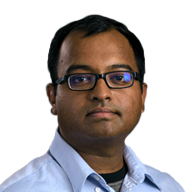
Research Interests: atmospheric boundary layer dynamics, turbulent fluid dynamics, land/water/vegetation-atmosphere interaction, wildfires, vegetation dynamics, carbon and water cycles, hydrology, wetlands and terrestrial aquatic interfaces
Education: Ph.D., Duke University
Banerjee received his bachelor’s degree in civil engineering from Jadavpur University, Calcutta, India, in 2011. During his undergraduate studies, Banerjee conducted research in the areas of structural dynamics and aerospace engineering in India and Germany as a German Academic Exchange Service fellow. He earned his doctorate at Duke University, where he conducted theoretical, numerical and experimental studies involving environmental fluid dynamics and turbulent flows. He then joined the Karlsruhe Institute of Technology in Germany for postdoctoral research in atmospheric boundary layer dynamics. Banerjee relocated to the U.S. in early 2017 to join Los Alamos National Laboratory in New Mexico and started working on wildfires, ecosystem disturbance and wind energy resources. At LANL, he received a Chick Keller Postdoctoral Fellowship in 2017 and a Director’s Fellowship in 2018. He currently serves as an associate editor of the journal Earth Systems and Environment (Springer) and as an editorial board member of the journal Agricultural and Forest Meteorology (Elsevier).
Links: Boundary Layers and Turbulence Lab
Electrical Engineering and Computer Science
 Hamidreza Aghasi
Hamidreza Aghasi
Assistant Professor
Department of Electrical Engineering and Computer Science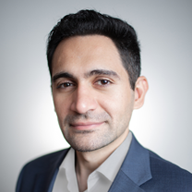
Research Interests: mm-wave and terahertz electronics for applications in communication, biomedical imaging, molecular spectroscopy
Education: Ph.D., Cornell University
Aghasi earned a bachelor’s degree in electrical engineering from Sharif University of Technology, Iran, and his master’s degree (2015) and doctorate (2017) in electrical engineering from Cornell University. He was a summer intern at Samsung Research America Display lab, in San Jose, California, then a postdoctoral research fellow at University of Michigan. Aghasi worked as a mm-wave research scientist at Acacia Communications Inc. before joining the UCI faculty. He is a member of the IEEE Solid-State Circuits, and Microwave Theory and Techniques societies. He received a Cornell graduate fellowship, Jacobs fellowship, Cornell ECE Innovation Award and the Cornell Scale up and Prototyping Award. He is also a co-recipient of the 2019 Best Invited Paper Award at the IEEE Custom Integrated Circuit Conference. His research involves designing, implementing and testing mm-wave and terahertz electronic circuits and systems. He also investigates the advances of emerging device technologies to evaluate their capabilities for high-speed computation and processing systems.
Links: High-speed Integrated Electronics Lab
 Salma Elmalaki
Salma Elmalaki
Assistant Professor of Teaching
Department of Electrical Engineering and Computer Science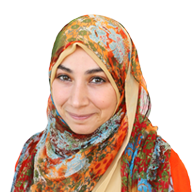
Research Interests: embedded systems, mobile computing, pervasive autonomous systems, personalized computing, internet-of-things
Education: Ph.D., UCLA
Elmalaki earned her bachelor’s degree (with distinction and honors) in computer and systems engineering from Ain Shams University, Cairo, Egypt. She completed her doctorate in 2018 in electrical and computer engineering at UCLA. Before joining UCI, she worked in the Scientific Computing group at Janelia Research Campus, Howard Hughes Medical Institute. She also worked for three years in the embedded systems industry as an R&D engineer. Elmalaki is the recipient of the Microsoft Research Fellowship (2016-2018), and the Best Paper Award and Best Community Paper Award from the International Conference on Mobile Computing and Networking in 2015. She was selected as a Grace Hopper Scholar to celebrate women in computing in 2016. Her research focuses on how to design machine learning-based systems to build adaptation and personalization services and designing OS system-support technologies for pervasive autonomous computing, along with addressing privacy concerns that arise as a consequence of personalized services.
Links: Faculty page
 Dr. Terence Sanger
Dr. Terence Sanger
Professor
Department of Electrical Engineering and Computer Science, and Pediatrics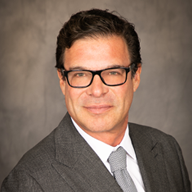
Research Interests: understanding motor learning in children, the use of kinematic measurements to design assistive communication interfaces, multiscale modeling of large-scale neural systems for control to understand the development of spasticity and dystonia
Education: Ph.D., MIT; M.D., Harvard Medical School
Sanger comes to UCI from USC where his research focused on understanding the origins of pediatric movement disorders from both a biological and a computational perspective. Sanger holds a doctorate in electrical engineering and computer science from MIT, an M.D. from Harvard Medical School, and a bachelor’s and master’s of science in applied mathematics from Harvard University. He studied pediatrics at Los Angeles County Medical Center, child neurology at Boston Children’s Hospital and movement disorders at Toronto Western Hospital and the Hospital for Sick Children. Sanger’s NIH-funded research includes work on understanding motor learning in children, the use of kinematic measurements to design assistive communication interfaces, and multiscale modeling of large-scale neural systems for control, with particular application to understanding the development of spasticity and dystonia. Techniques in his laboratory include repetitive transcranial magnetic stimulation, transcranial direct-current stimulation, mathematical modeling and the use of field-programmable gate arrays to perform high-speed simulations of neural development. Sanger has made important recent discoveries on the role of long-latency stretch reflexes in the genesis of childhood secondary dystonia.
Links: Faculty profile
 Yanning Shen
Yanning Shen
Assistant Professor
Department of Electrical Engineering and Computer Science, and Pediatrics
Research Interests: machine learning, data science, network science, statistical-signal processing
Education: Ph.D., University of Minnesota
Shen earned her bachelor’s degree from the University of Science and Technology of China and her doctorate from the University of Minnesota in 2019. She was a finalist for the Best Student Paper Award at the 2017 IEEE International Workshop on Computational Advances in Multi-Sensor Adaptive Processing, and the 2017 Asilomar Conference on Signals, Systems, and Computers. She was selected as a Rising Star in EECS by Stanford University in 2017 and received the UMN Doctoral Dissertation fellowship in 2018.
Links: Faculty page
 Yasser Shoukry
Yasser Shoukry
Assistant Professor
Department of Electrical Engineering and Computer Science, and Pediatrics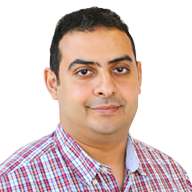
Research Interests: resilience, safety, security and privacy of artificial intelligence; controlled cyberphysical systems, internet-of-things, robotic systems
Education: Ph.D., UCLA
Shoukry earned bachelor’s and master’s degrees in computer and systems engineering from Ain Shams University, Cairo, Egypt. He received a doctorate in electrical engineering from UCLA in 2015. Shoukry spent two years as a joint postdoctoral associate at UC Berkeley, UCLA and the University of Pennsylvania, and four years as an R&D engineer in the automotive embedded systems industry. Before joining the UCI faculty, he served as an assistant professor of electrical and computer engineering at University of Maryland, College Park. He is a recipient of the NSF CAREER Award (2019), the Best Demo Award from the International Conference on Information Processing in Sensor Networks in 2017 and the Best Paper Award from the International Conference on Cyber-Physical Systems in 2016. In 2015, he led the UCLA/Caltech/CMU team to win the NSF Early Career Investigators research challenge. Shoukry’s research involves developing algorithms and tools to reason about the resilience, security and privacy of artificial intelligence-controlled cyberphysical systems and internet-of-things, in general, and robotic systems, in particular, in order to provide a scientific basis to understand their fundamental properties and guide their design.
Links: Resilient Cyber-Physical Systems Lab, Faculty page
Materials Science and Engineering
 Diran Apelian
Diran Apelian
Distinguished Professor
Department of Materials Science and Engineering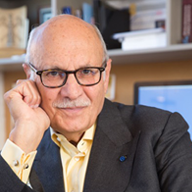
Research Interests: solidification processing, aluminum metallurgy, clean metal/melt refining, plasma processing/spray forming, powder metallurgy, nanostructured materials, semi-solid processing, thermal processing, resource recovery and recycling, innovation in engineering education
Education: Sc.D., MIT
Apelian is widely recognized for his innovative work in metal processing and for his leadership as a researcher and educator. His research has helped establish mechanisms and fundamentals in metal processing and helped lay the foundations for significant industrial developments. More recently, his work in the development of technologies to recover and recycle materials has become critically important for a sustainable future. He is a member of the National Academy of Engineering, European Academy of Sciences, National Academy of Inventors and the Armenian Academy of Sciences. He has received numerous honors and awards, has published over 700 publications and serves on several technical, corporate and editorial boards. Prior to joining the UCI faculty, he was a former provost and faculty member at Worcester Polytechnic Institute. He received his bachelor’s degree in metallurgical engineering from Drexel University in 1968 and his doctorate in materials science and engineering from MIT in 1972. In addition to being a distinguished professor, Apelian serves as chief strategy officer for the Samueli School of Engineering.
Links: Faculty profile
 Stacy Copp
Stacy Copp
Assistant Professor
Department of Materials Science and Engineering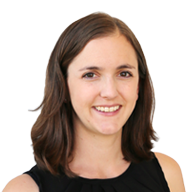
Research Interests: soft matter-based photonic materials, metal nanoclusters, polymer nanostructures, self-assembly, biomimetics, machine learning for materials discovery
Education: Ph.D., UC Santa Barbara
Copp earned her bachelor’s degree in physics and mathematics from the University of Arizona in 2011. She then completed her master’s degree (2013) and doctorate (2016) in physics at UC Santa Barbara. Copp studies how soft-matter building blocks can be used to build novel nanomaterials that generate and/or control light, with an aim to revolutionize technologies in energy and medicine. At UCI, her lab focuses on block copolymer-directed assembly of photonic nanomaterials and on DNA-directed assembly of metallic clusters and nanostructures, as well as methods to expedite nanomaterials discovery using high-throughput experiments and tools from machine learning. Copp was a Hoffman Distinguished postdoctoral fellow at Los Alamos National Laboratory, where she also held a UC President’s postdoctoral fellowship, a L’Oreal USA for Women in Science fellowship, and a LANL Director’s postdoctoral fellowship. At UCI, she holds a Samueli Faculty Development Chair.
Links: Copp Lab
 David Kisailus
David Kisailus
Professor
Department of Materials Science and Engineering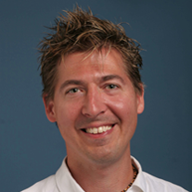
Research Interests: investigation of synthesis-structure and structure-property relationships in biological and biomimetic materials; development of multifunctional structural materials; synthesis and crystal growth of nanoscale materials for energy conversion, storage and environmental remediation
Education: Ph.D., UC Santa Barbara
Kisailus comes to UCI from UC Riverside where he was the Winston Chung Endowed Chair of Energy Innovation. He is a Kavli Fellow of the National Academy of Sciences and a member of the UNESCO Chair in Materials and Technologies for Energy Conversion, Saving and Storage network. Kisailus earned his bachelor’s degree in chemical engineering from Drexel University in 1993, his master’s degree in materials science and engineering from the University of Florida in 1999 and a doctorate in materials science from UC Santa Barbara in 2002. After graduating, he served as a postdoctoral researcher in molecular biology at UC Santa Barbara, then went to HRL Laboratories as a research scientist. His research focuses on investigating biomineralized composites in order to derive not only structure-functional relationships (for development of lightweight and tough materials), but also in interpreting mineralization pathways that dictate resulting ultra structures. The ultimate goal is to be able to leverage lessons from nature to develop next-generation materials for energy conversion and storage as well as for environmental applications.
Links: Faculty profile
Mechanical and Aerospace Engineering
 Ramin Bostanabad
Ramin Bostanabad
Assistant Professor
Department of Mechanical and Aerospace Engineering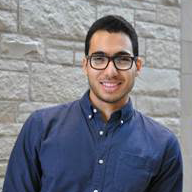
Research Interests: design under uncertainty, probabilistic machine learning, materials informatics, computational microstructure characterization, topology optimization
Education: Ph.D., Northwestern University
Bostanabad completed his bachelor’s degree at the University of Tehran. He earned his doctorate in 2019 from Northwestern University where he developed data-driven and physics-informed computational frameworks and methods to systematically model and analyze complex systems in the presence of uncertainty. His work at Northwestern earned him a Terminal Year fellowship, Martin Outstanding Doctoral fellowship, Predictive Science and Engineering Design fellowship and Walter P. Murphy fellowship. At UCI, he is supervising cross-disciplinary projects, including designing next-generation materials using mechano-probabilistic deep learning, uncertainty quantification in high-dimensional and multifidelity systems, and Bayesian analysis of multiscale and multiphysics computer models.
Links: PMACS Lab
 David Copp
David Copp
Assistant Professor of Teaching
Department of Mechanical and Aerospace Engineering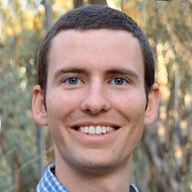
Research Interests: optimal control and estimation, hybrid dynamical systems, energy storage and engineering education
Education: Ph.D., UC Santa Barbara
Copp earned his bachelor’s degree in mechanical engineering at University of Arizona in 2011. He completed his master’s degree (2014) and doctorate (2016) at UC Santa Barbara. He worked on grid integration, analysis and control of energy storage as a senior member of the technical staff at Sandia National Laboratories, during which time he was also an adjunct faculty member in electrical and computer engineering at the University of New Mexico. His broad research interests include engineering education, as well as control and optimization of nonlinear and hybrid systems with applications to power and energy systems, multi-agent systems, robotics and biomedicine. He is a recipient of UCSB's Center for Control, Dynamical Systems, and Computation Best Ph.D. Thesis award.
Links: Faculty profile
